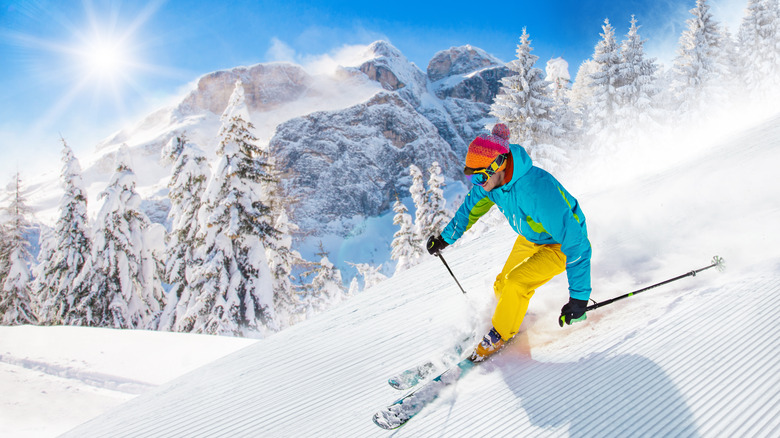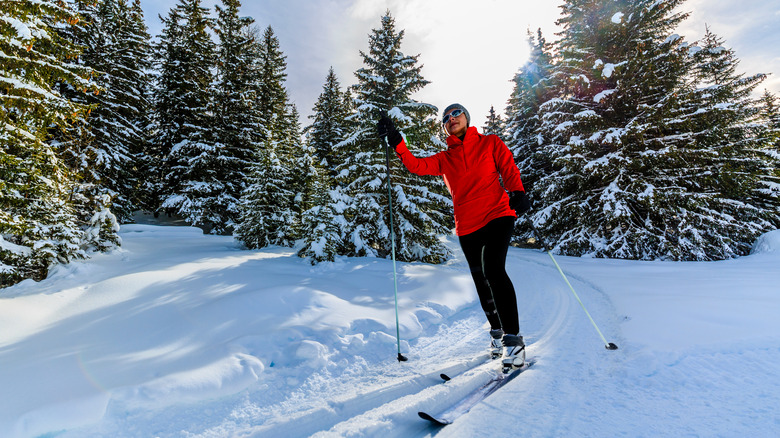This Is How Beneficial Skiing Can Be For Your Health
According to Statista, there were 7 million active skiers in the United States in 2018. That number rises to 9.9 million if you include snowboarders. If you're one of those 9.9 million people, you'll be happy to learn that medical and fitness experts agree that while you're having a blast out on the slopes, you're also getting some terrific health benefits.
"Skiing gets you outdoors in the winter when we often end up on the couch and are passive," physical therapist Scott Tremmel tells Cleveland Clinic. "We're just not as active when the cold weather sets in, but skiing keeps you moving to continue to build up your endurance."
Downhill, or alpine, skiing requires you to shift your weight from side to side, which strengthens the bones and joints in your legs, knees and back. According to Tremmel, this could help prevent osteoporosis down the road. Downhill skiing also requires you to focus on all areas of your body to help maintain balance. This attention not only helps create more self-awareness about how well your body is functioning, but also builds up your core, strength and agility, which could help prevent falls as you age.
That sense of well-being you get from skiing is also a perk. As a physical activity that takes place in beautiful, natural settings, often involving groups and social interaction, some experts believe that skiing also supports mental health (via National Institutes of Health).
How cross-country skiing is good for your health
If downhill skiing is not the outdoor activity for you, cross-country skiing could be a great alternative. Cross-country skiing works the body a bit differently compared to downhill skiing, since you are moving your legs back and forth or side to side over flat terrain rather than navigating a decline. Cross-country skiing also engages your arms more, since you need to constantly drive your poles into the ground to propel the body forward, Rosie Brennan, a 2018 Olympic cross-country skier and a two-time winner on the World Cup circuit, tells Shape.
"To me, the best part about cross-country skiing is that it literally works every single muscle you have," Brennan says. "It's like one of the hardest sports for that reason."
Because cross-country skiing is intense aerobic exercise, Brennan points out that it is a great way to support your cardiorespiratory fitness. "When you're using every muscle you have, your heart is pumping a lot of blood to carry the oxygen to your muscles, so the heart gets stronger and your lungs get stronger doing it," Brennan says.
Cross-country skiing also builds muscle without pounding on your joints, and helps with balance and agility, Brennan says. And, like downhill skiing, cross country skiing can give you that sense of well-being. "It's kind of rhythmic, so you can have the ability to process your thoughts and enjoy fresh air, nature, and all the beauty around you," Brennan says.


